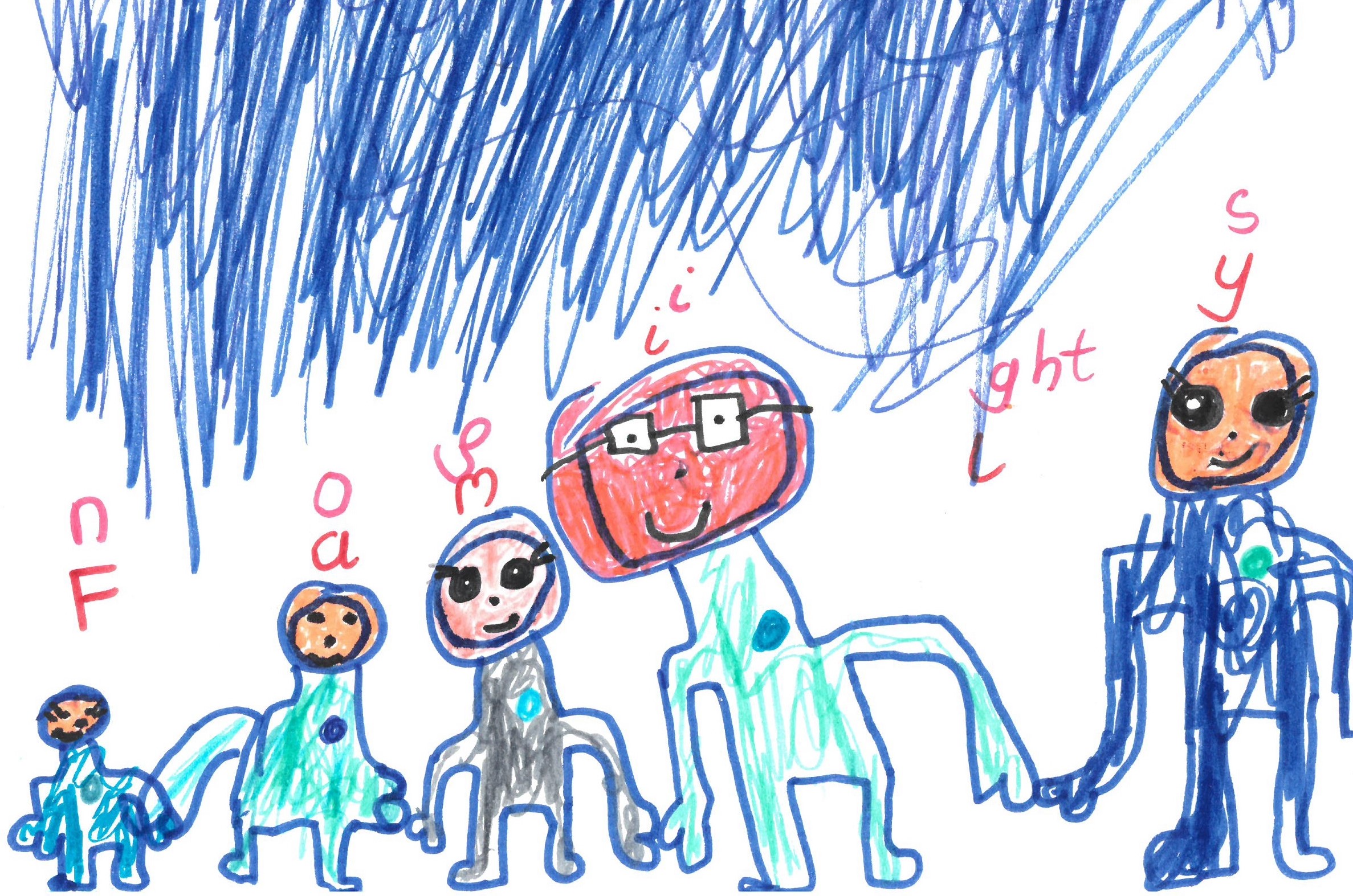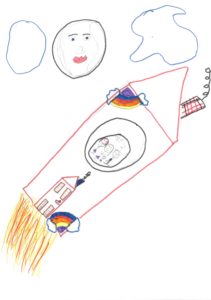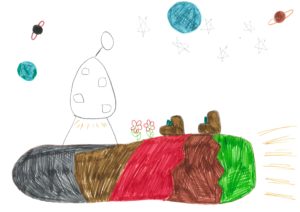
By Chloe Alexander, Teaching Associate in Sociology
School of Social Policy, University of Birmingham
For my recent research project, a group of young carers – all from the West Midlands – travelled with their families to space. This happened in their imaginations (due to a tight research budget). They drew pictures showing their idea of how their family would live and care for each other on another planet or floating on an asteroid. Their brothers, sisters and parents put pen to paper as well, drawing how they imagined the way they would care for one another.
Young carers are children who provide care unpaid for a family member. There are local services that support them, and they have legal rights in the UK.
On Young Carers Awareness Day 2020, I wonder what future decades will bring for the experiences of young carers in the UK. When I think about the young people who shared their experiences of caring with me, I imagine caring will be a very important part of their lives in ten years, although their situation in their late teens and twenties might be quite different. Care might be something they do more remotely as they build new lives elsewhere, start at university, start a family or move for a new job. Other caring roles might become part of their life too. Some of the young carers spoke about the support they got in their neighbourhood and the want to stay close to family.

In ten years, I expect that they will have changed a great deal, but so will the types of support their families need. It is hard to predict the path their lives will take, but the experience of being a young carer will have been an important part of their childhood.
Whilst their lives jump forward a decade, other young people are likely to be becoming young carers. I expect those young carers would value the specialist young carers services that provided support to the group I knew. I hope those services will still be in place and I imagine they will. Those young carers services have shown how much they are needed, and they continue to get support locally, whether that is running projects funded by local councils or raising money from charitable donations. They might be a bigger part of the health service in the future. I hope that in a decade families would have greater financial support because during my research in 2018 I saw the intense financial pressures on several families, struggling to afford to pay for the food, activities, transport and educational materials that their children needed.

Returning to the images of care in space, drawn in a rainbow of colours, families shared their ideals of being free to enjoy family life without so much pressure. They explained that their housing could be an easier place to live, with more space, flowers outside, tasty vegetables nearby, a beautiful view to relax in front of.
Their drawings helped me understand their ideals of being a caring family and how the world around them could be much more supportive. It appears that in 2020 policies on young carers are yet to develop to the extent that families benefit from a more supportive environment. The exercise of imagining caring for your family in space makes us think about the future but it also has lessons for us now.
